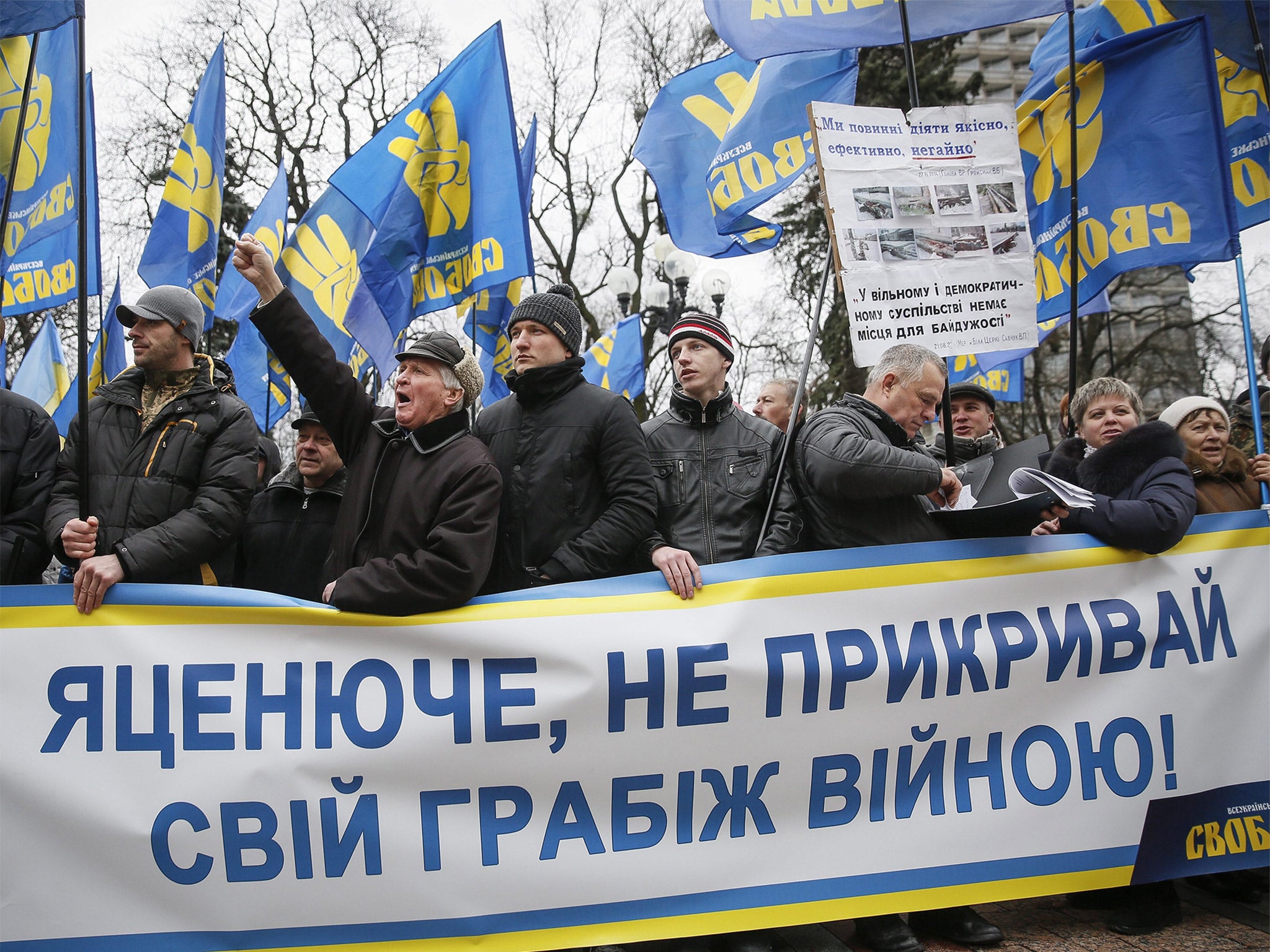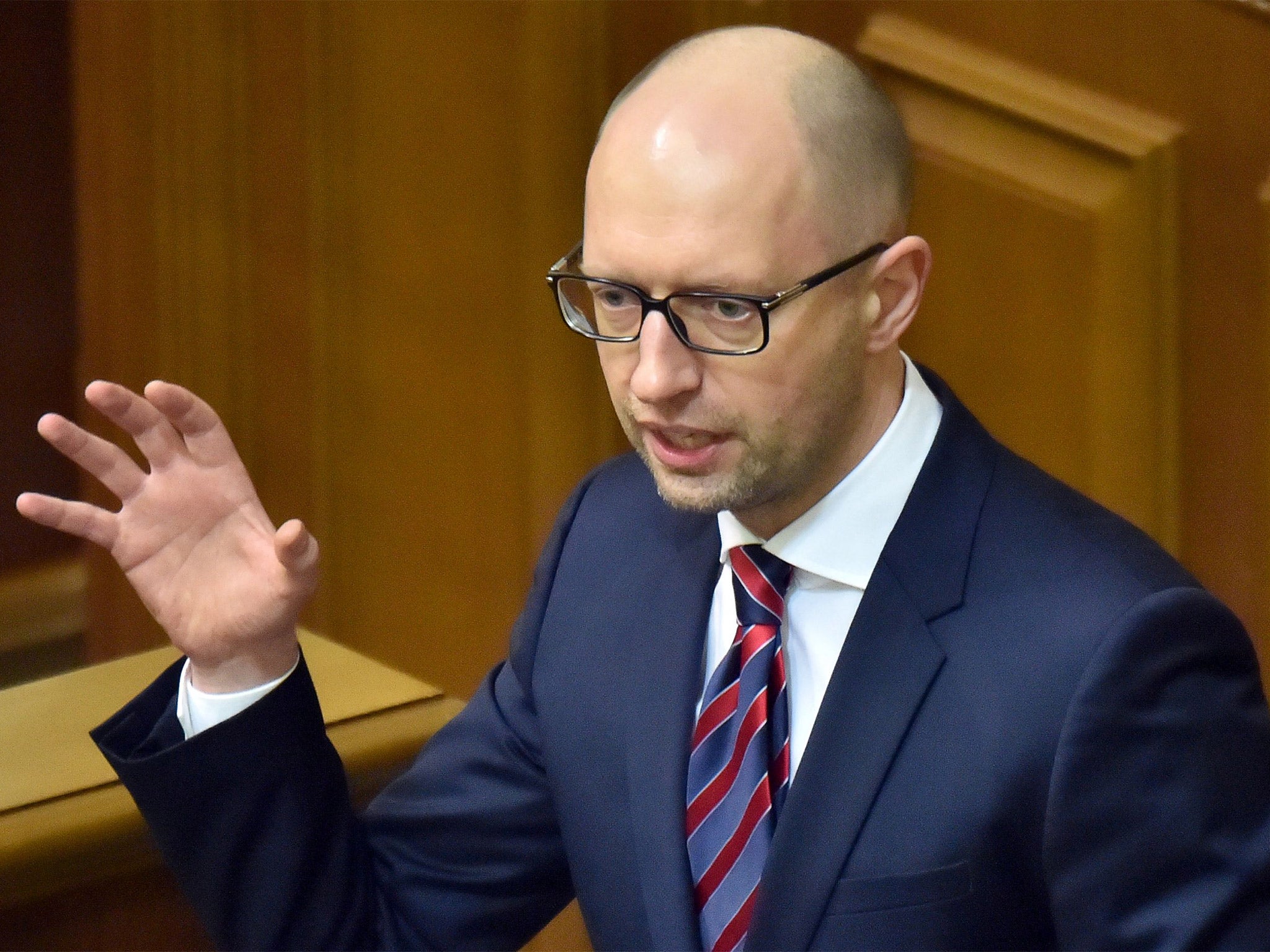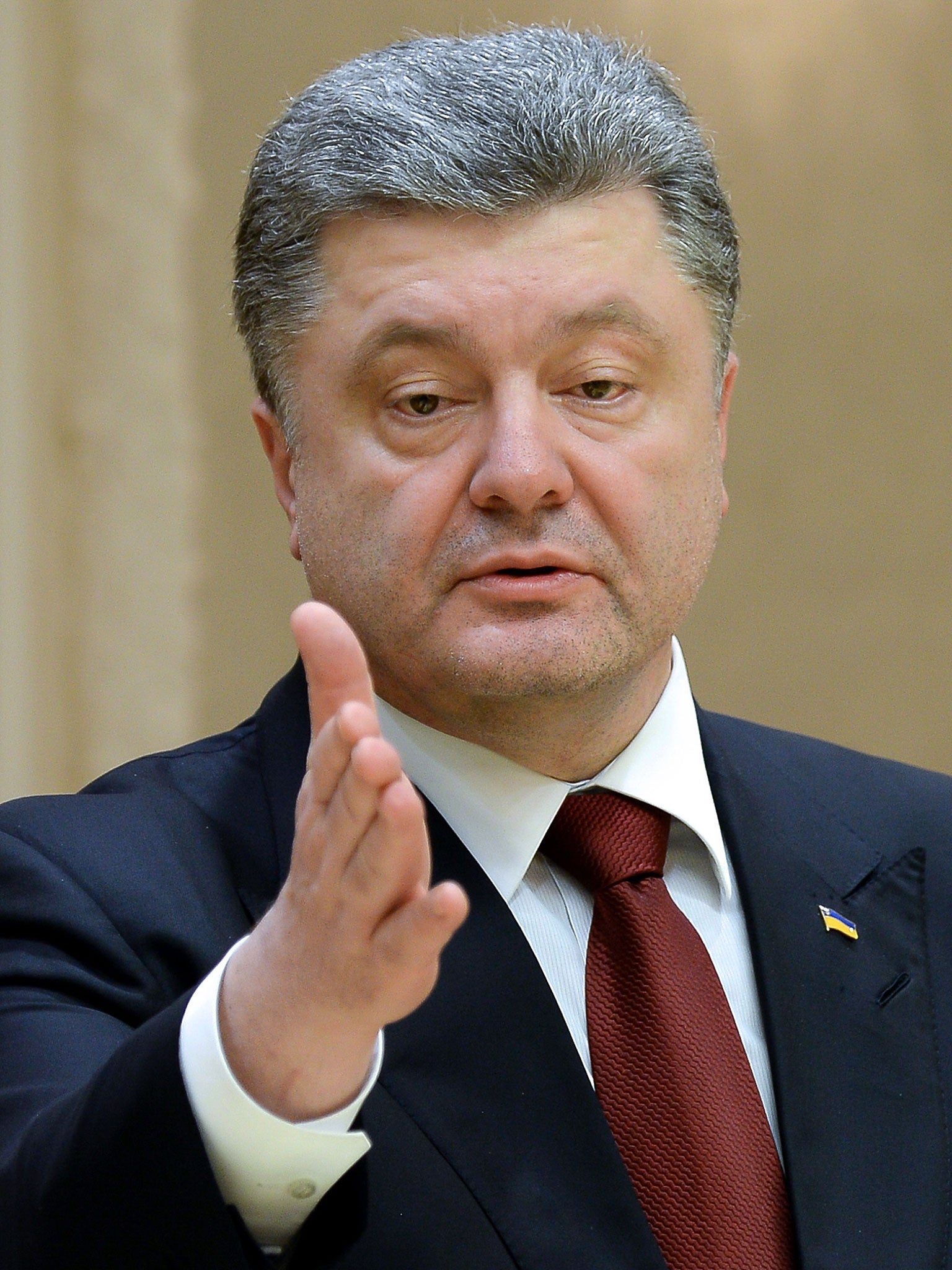Ukraine parliament lodges motion of no confidence against government over failure to end corruption and revitalise economy
President Petro Poroshenko urged Prime Minister Arseniy Yatsenyuk and prosecutor general Viktor Shokin to resign in a bid 'to restore trust' at a meeting on Monday

Ukraine’s parliament has lodged a motion of no confidence against Prime Minister Arseniy Yatsenyuk’s government following a call from President Petro Poroshenko urging the minister to resign.
In a meeting with Mr Yatsenyuk and prosecutor general Viktor Shokin on Monday, Mr Poroshenko advised both men to resign in a bid “to restore trust in the government”, as he made a last ditch attempt to address the cabinet’s continued failure to stymie corruption and revitalise the country’s flailing economy that has led Ukraine to the brink of political crisis. Mr Shokin later agreed to step down.
Hours before the meeting, as Mr Yatsenyuk was preparing to address parliament with a report about government performance, demonstrators had gathered outside Kiev’s Rada parliament calling for Mr Yatsenyuk’s resignation. Meanwhile, ministers inside were collecting signatures from politicians, successfully reaching the 150-signature threshold required to trigger a no-confidence vote.
“To restore trust, therapy is not enough,” Mr Poroshenko said. “One should resort to surgical means.”
Mr Poroshenko, himself accused of presiding over systemic corruption, has said that there would be no snap elections, despite the fact that failure to find a replacement for Mr Yatsenyuk could theoretically set the stage for early parliamentary elections.

Irina Friz, a lawmaker from Mr Poroshenko’s party, said in a statement that the cabinet has yet to honour a single item of the economic programme. “The government reports it has fulfilled lots of tasks aimed at creating a favourable investment climate. But expected changes to improve business conditions didn’t materialise,” she said.
Mr Yatsenyuk rose to power together with Mr Poroshenko and his government in February 2014, following the Maidan revolution that toppled former president and Kremlin-sympathiser Viktor Yanukovych. However, since then, hope that Ukraine can leave its history of rampant corruption and cronyism behind has inched away, with the new, pro-Western government considered by many as a continuation of the “old guard”.

The level of corruption among Ukraine’s political elite has also threatened to derail a large bailout package from the International Monetary Fund (IMF). Following the resignation of Ukraine’s reform-minded economy minister Aivaras Abromavicius earlier this month, the head of the IMF, Christine Lagarde, issued a stark warning to President Poroshenko threatening to withhold the IMF’s $40 million financial rescue package for Ukraine if serious governance reforms were not initiated.
“I am concerned about Ukraine’s slow progress in improving governance and fighting corruption,” Ms Lagarde said. “Ukraine risks a return to the pattern of failed economic policies that has plagued its recent history.”
Lithuanian-born Mr Abromavicius joined several other foreign nationals invited to work in Ukraine’s government in an attempt to change its corrupt ways. But continued pressure from senior politicians close to the president pedalling shady business interests had hampered any chance for economic reform, Mr Abromavicius said.
In a statement made in Kiev, Mr Abromavicius said that neither he nor his team “have any desire to serve as a cover-up for covert corruption, or become puppets for those who, very much like the old government, are trying to exercise control over the flow of public funds”.
His resignation was the fifth and most high-profile departure from Ukraine’s governing coalition so far, a reflection of the mounting frustration among politicians whose attempts to root out graft have been blocked.
The government shake up comes amid renewed fighting in eastern Ukraine between government forces and Russian-backed separatists. Three Ukrainian soldiers were killed on Monday and seven more wounded in the fighting, making it the highest number of daily casualties since November, according to the Ukrainian military. International monitors have said that eastern Ukraine is in a “dire” humanitarian situation.
Join our commenting forum
Join thought-provoking conversations, follow other Independent readers and see their replies
Comments